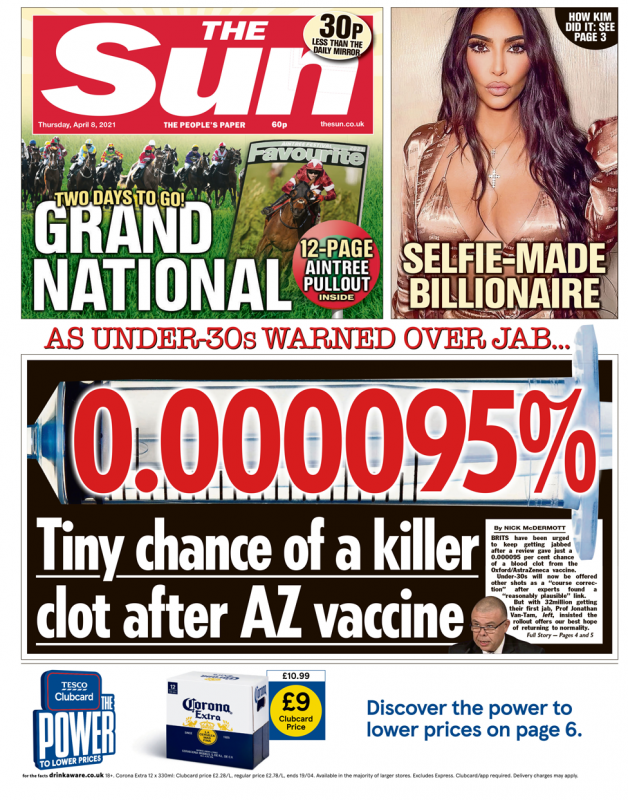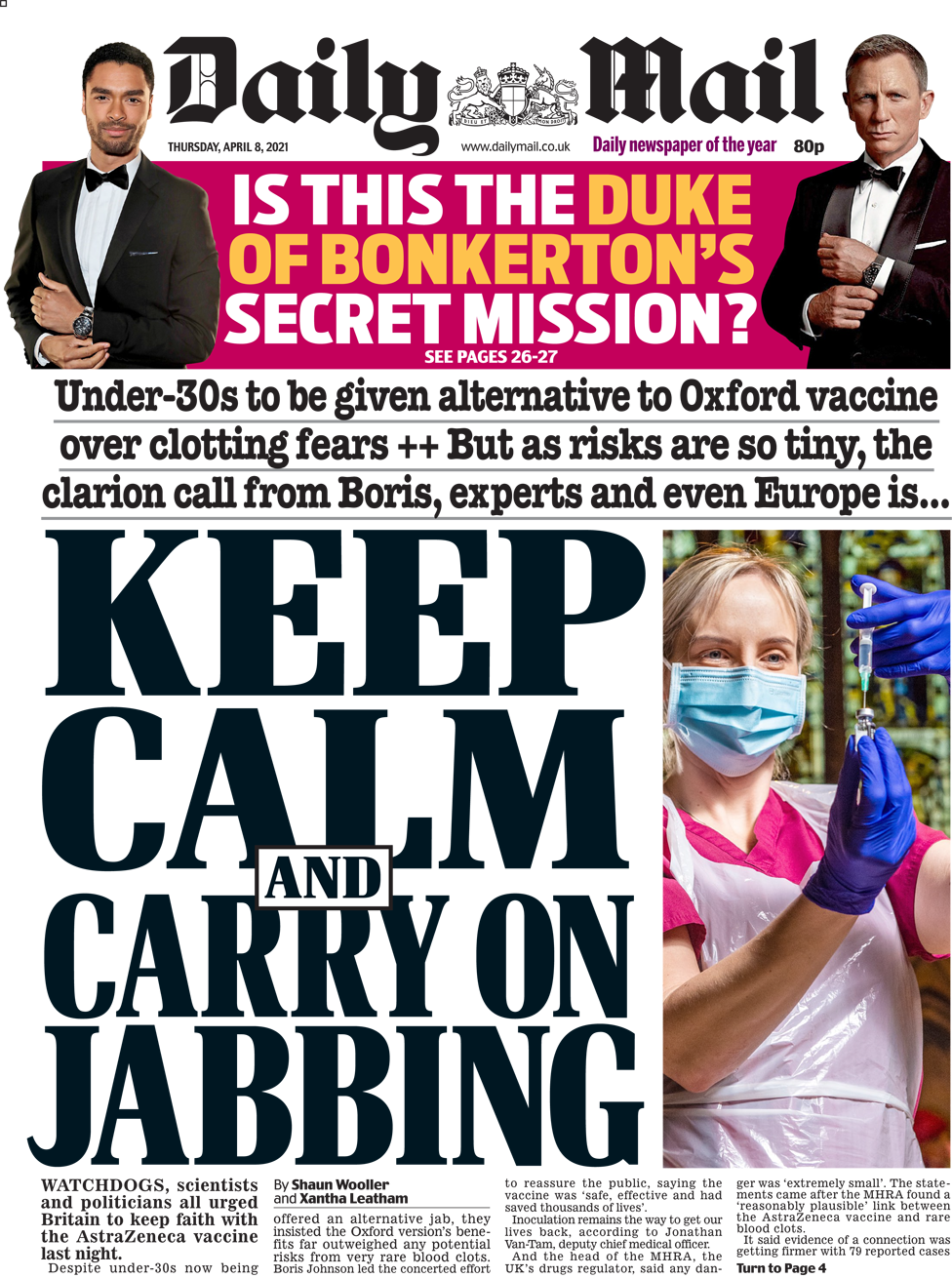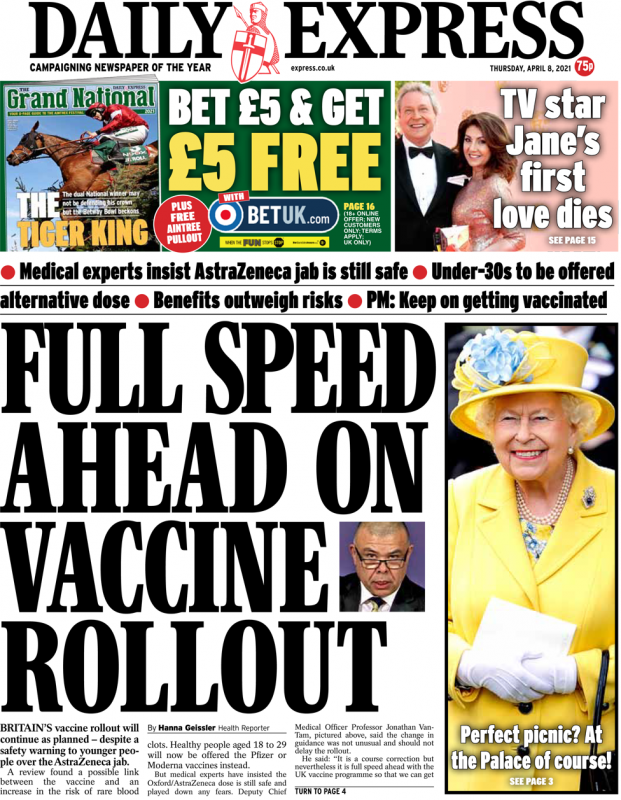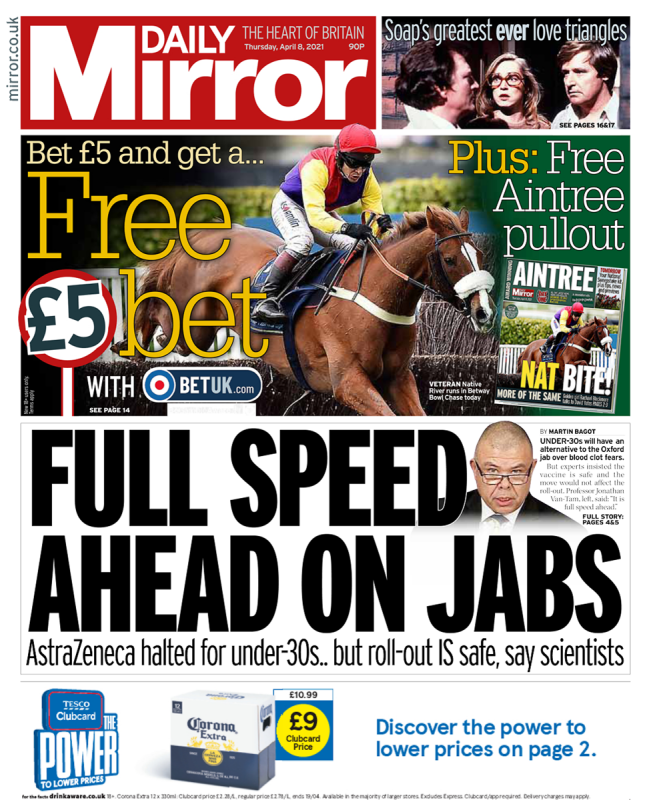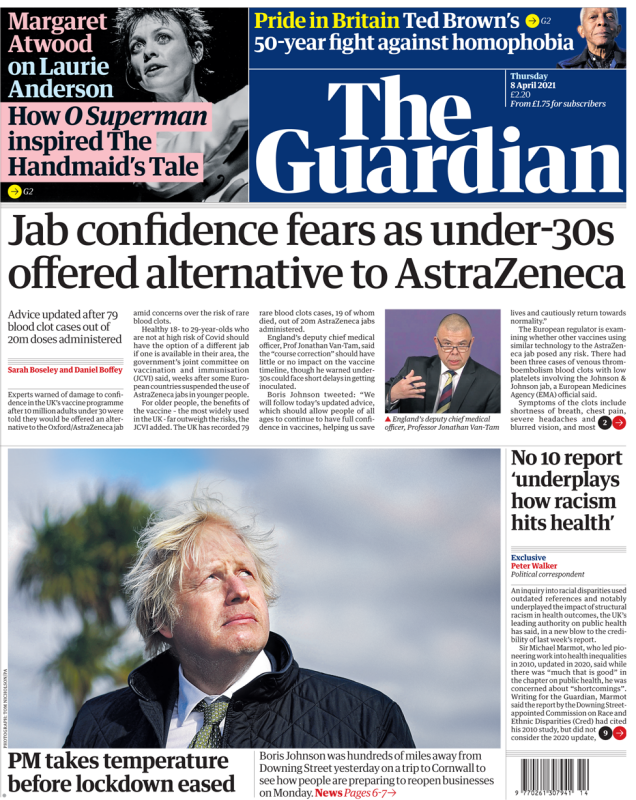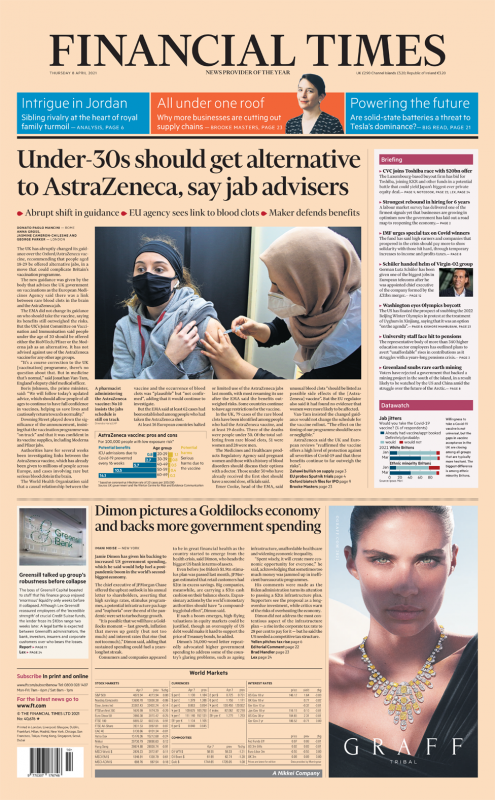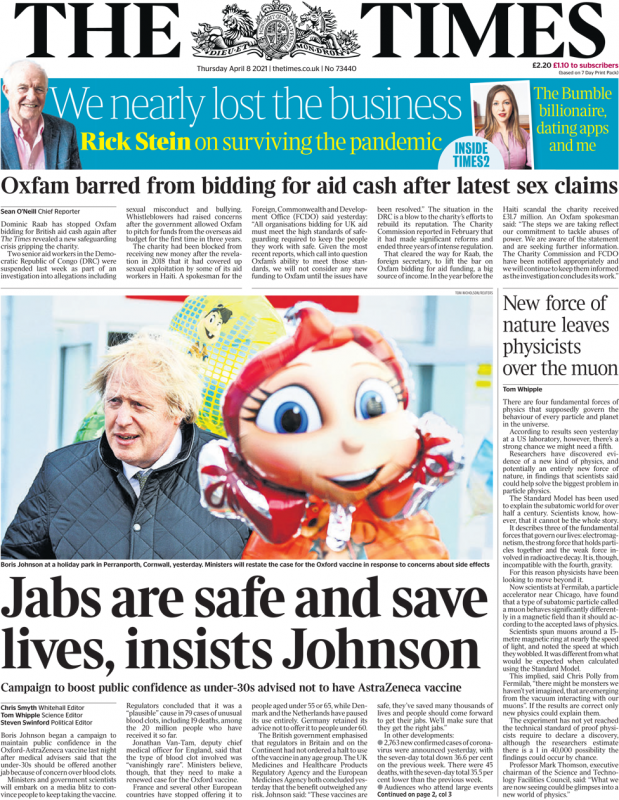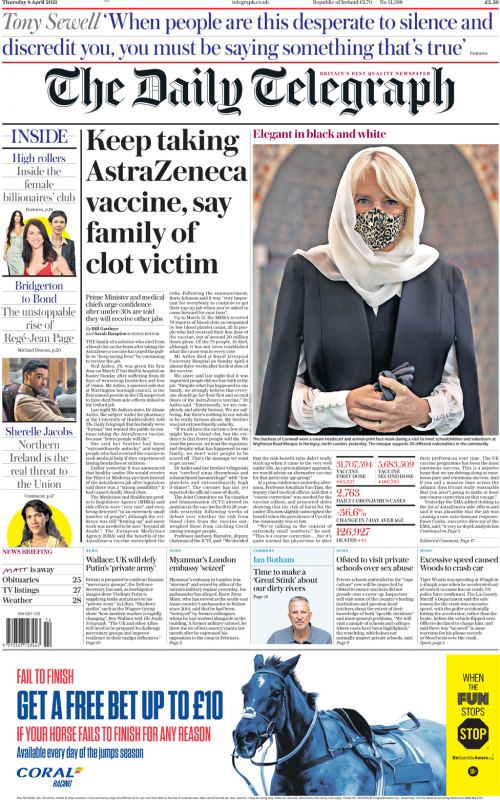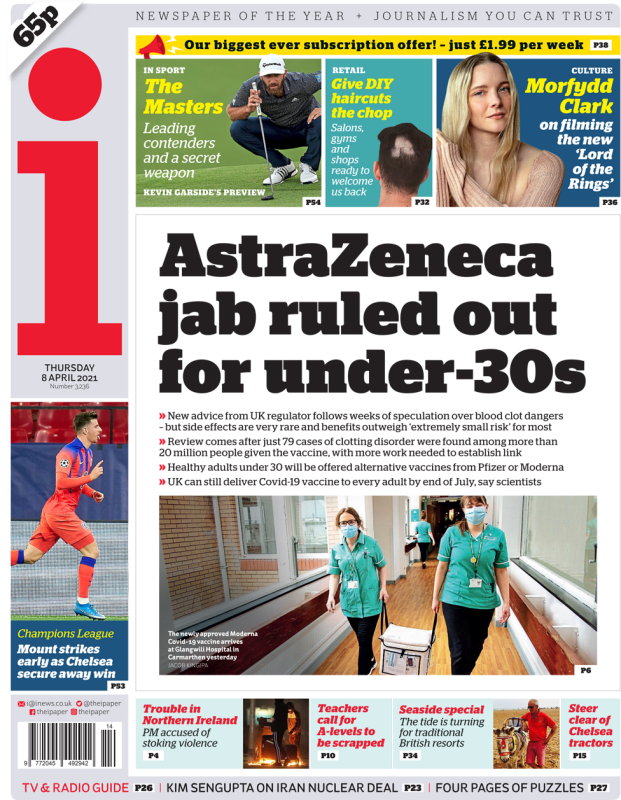
The UK’s national newspapers have been widely praised for their coverage of blood clot concerns over the Oxford/AstraZeneca Covid-19 vaccine.
The Sun’s splash headline on Thursday emphasised the tiny risk of dying from a rare blood clot after having the vaccine – one in a million or, as the paper put it, a 0.000095% chance.
Fiona Fox, chief executive of the Science Media Centre which she set up to help improve science coverage in the UK, said: “For us to see a statistic on the front page of The Sun is just glorious.” She said for years the narrative had been that the UK media does not understand statistics.
Meanwhile the Daily Mail emphasised in its sub-headline the risks were “so tiny”, with the clarion call: “Keep calm and carry on jabbing.”
The Daily Mirror and Daily Express, both owned by Reach, both championed that the vaccine rollout continued with “full speed ahead”.
And the Daily Telegraph got the scoop with a family of one blood clot victim urging others to continue getting the vaccine because “fewer people will die”.
Of the 16 bylined journalists on front-page stories about the vaccine on Thursday, 56% are science and health journalists.
The Sun, Daily Mail, Daily Express and Daily Mirror’s stories were credited solely to science and health journalists.
There were concerns earlier in the pandemic that political journalists should give way more often to their specialist colleagues – especially towards the start of the Government’s daily press briefings.
Daily Mirror political editor Pippa Crerar acknowledged last month there had been a “very steep learning curve” for political journalists at the start of the Covid-19 crisis with an “overlap between science and politics in a way that there never has been in my time covering politics”.
Fox told Press Gazette: “I am not somebody who’s uncritical of the UK media’s coverage of science but I can’t find anything to criticise. I think they have been exemplary. I really credit the science and health and medical reporters.”
She noted that other countries where coverage has been “less good” during the Covid-19 pandemic had got rid of many of their specialist correspondents. “I’m not even sure why the UK has held onto them but we have, even when newsrooms have been cut horribly,” she said.
“Fair play to these editors – they have recognised that having specialists who understand science and health is really important and I think that largely explains the coverage.”
[Read more: Science Media Centre chief says ‘cuts to journalism come at a time when it is needed more than ever’]
Fox added that the UK’s science and health journalists were “showing the best of journalism”.
“They have tortured themselves about how you report this blood clot story, because obviously it is important – there has not been any attempt to play it down, they have reported it, but they have been extremely mindful that you don’t want to be the people who undermine the vaccine programme in the UK either through disinformation or by quoting people who aren’t close to the information. I have nothing but praise for them.”
Also praising the way the Government had communicated the concerns and uncertainty over the AstraZeneca vaccine, Fox added: “It feels like everyone’s stepped up to the plate. The scientists who have got to communicate this… combined with great science and health journalists.”
Oliver Cooper, a Tory leader in Camden, north London, tweeted on Wednesday night: “The UK should be very proud of these front pages tomorrow: shunning sensationalism and putting the vanishingly small vaccine risks in the context of the huge benefits.”
The Sun’s front page on Thursday drew the most praise, including from New Scientist deputy news editor Jacob Aron who tweeted: “The Sun, making a sensible point using absolute (not relative) risk figures, on its front page? This is science journalism Christmas.”
Owen Meredith, currently chief executive of the Professional Publishers Association and soon to be leading the News Media Association, said The Sun’s splash was a “great example of UK press doing a brilliant job of communicating the importance of getting your jab”.
Times2 deputy editor Alice-Azania Jarvis described it as the “perfect combination of cheeky tabloid humour and public health messaging” and thinktank director Matt Kilcoyne praised it for “doing its duty to reveal truth and explain real risk in simple terms”.
Email pged@pressgazette.co.uk to point out mistakes, provide story tips or send in a letter for publication on our "Letters Page" blog

